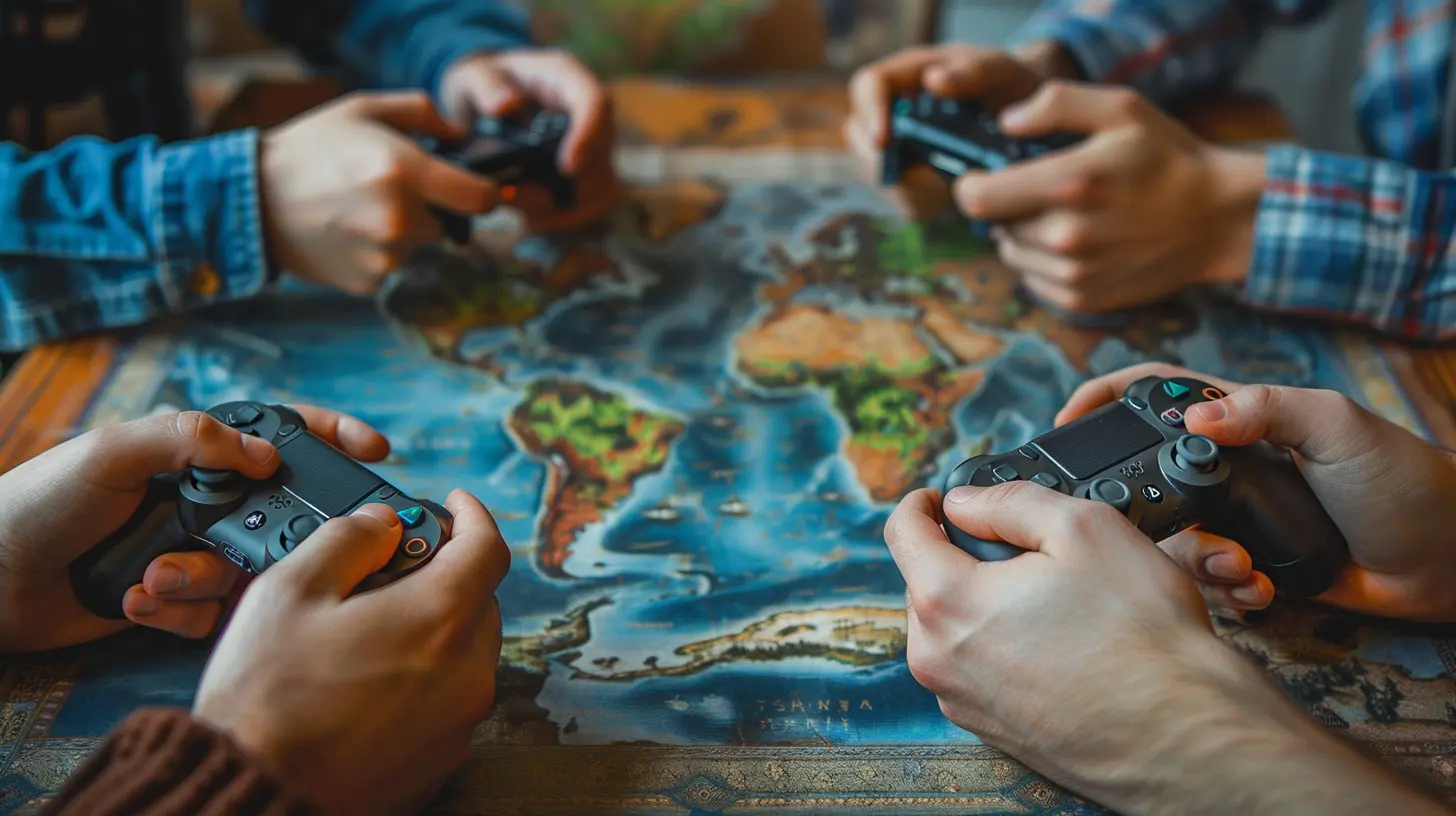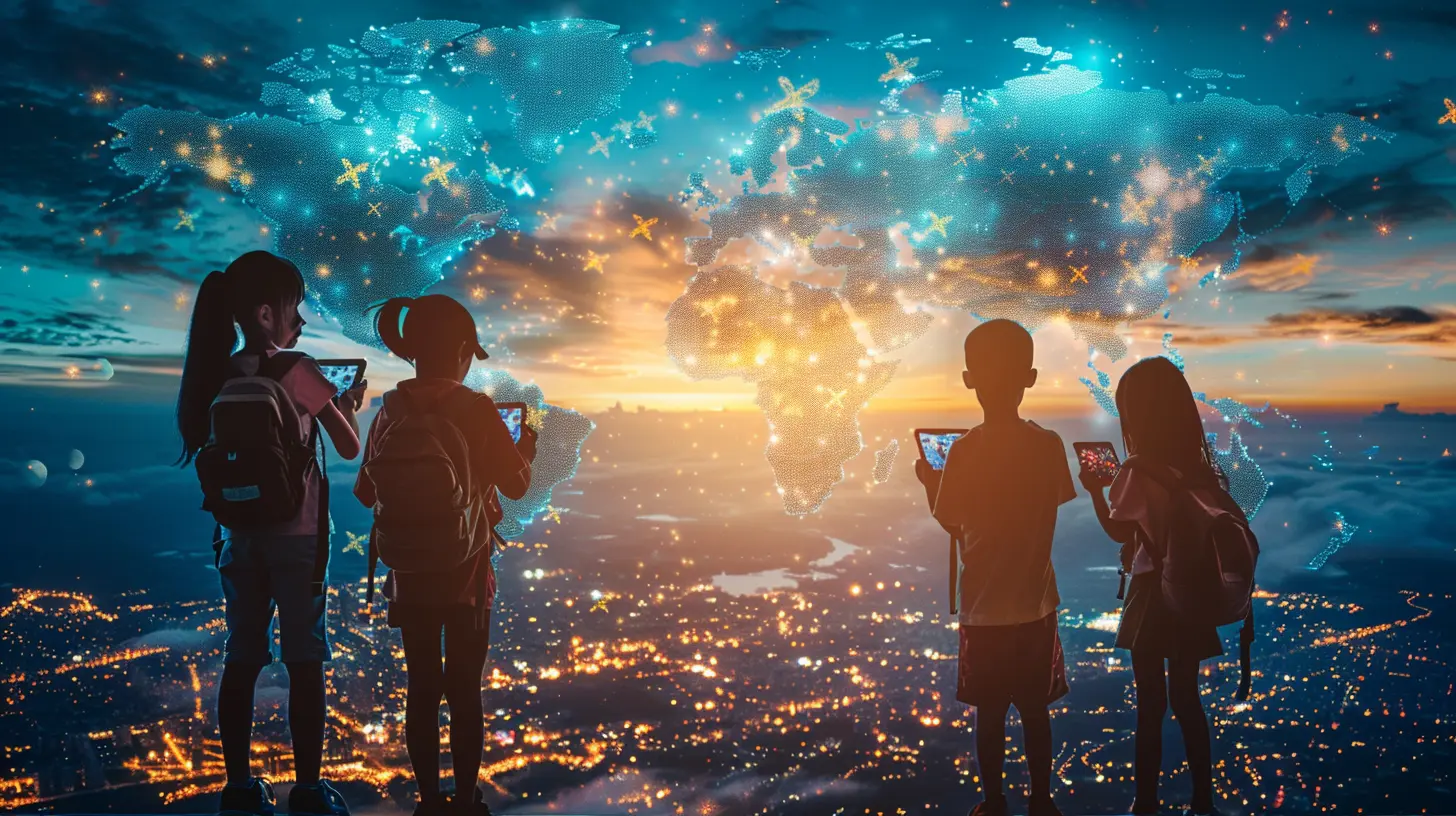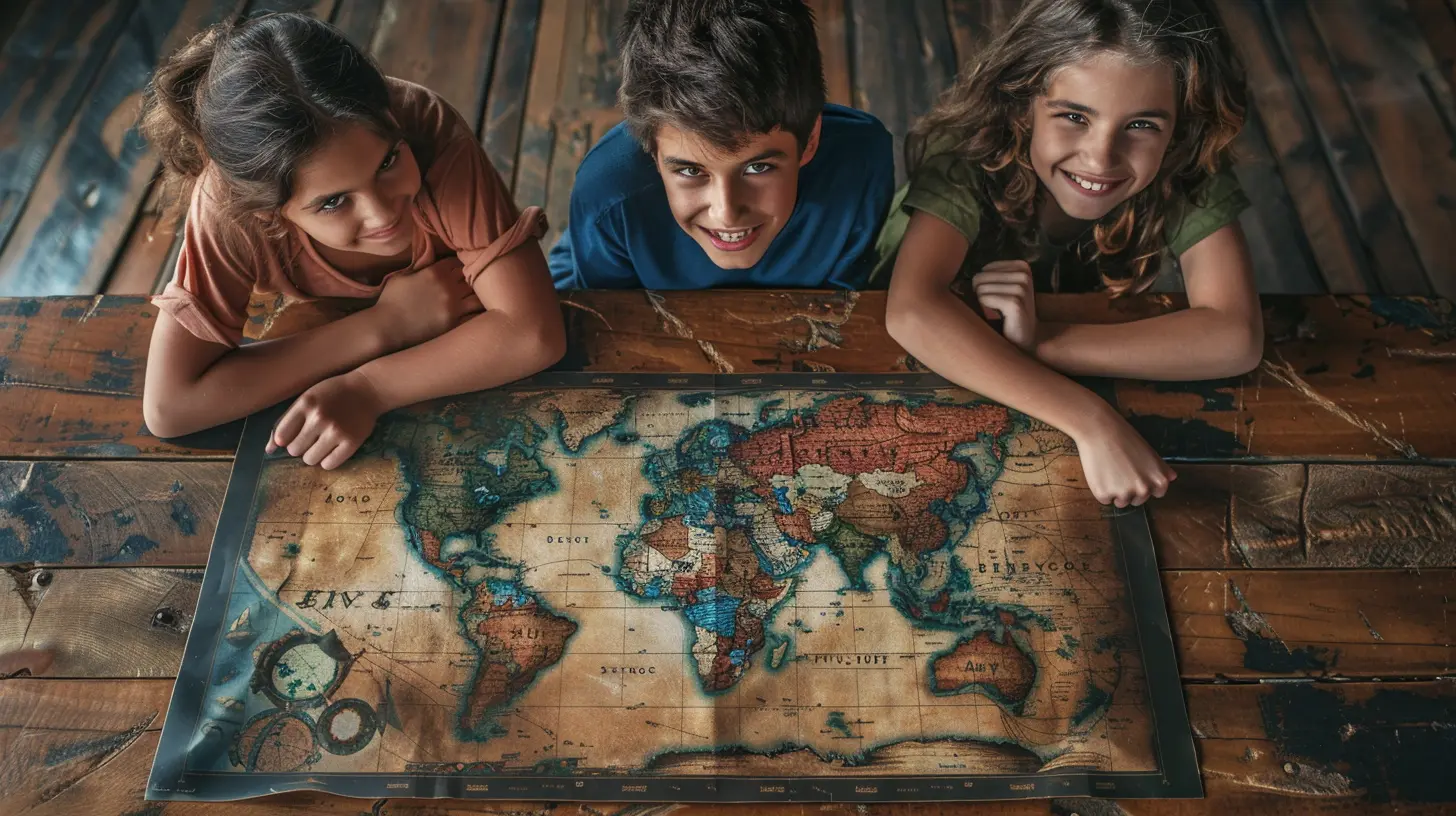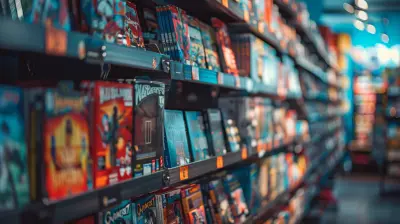Gaming as a Tool for Cross-Cultural Communication
30 August 2025
Let’s be honest—when most people think about video games, the first thing that pops into their heads isn’t "cross-cultural communication." It's usually something more along the lines of epic boss battles, stunning graphics, or maybe that one guy yelling in your headset during a multiplayer match. But here’s the twist: gaming has quietly grown into one of the most powerful tools for connecting people from all over the globe. And not just through competition, but through shared stories, emotions, and experiences.
Today, we're diving into how gaming is bridging cultural gaps, breaking down language barriers, and turning strangers into teammates—even best friends. So grab your controller or keyboard and let’s unpack how gaming is doing way more than just entertaining us.
The Global Gaming Universe
Think of the gaming world as a massive digital playground with millions (scratch that—billions) of players. It's like the world's biggest dinner party where everyone’s invited, and the only requirement is an internet connection.As of 2024, there are over 3.3 billion gamers worldwide. That’s nearly half the entire planet! Whether you’re in Tokyo, Toronto, or Timbuktu, chances are you're connected to someone else through a game. From console giants like PlayStation and Xbox to handhelds and mobile games, cultures are colliding—and uniting—every single day.
Language Isn’t Always a Barrier Anymore
Remember back in the day when if someone didn't speak your language, the conversation ended right there? Not anymore. Gaming has found clever workarounds. Through emojis, in-game gestures, universal icons, or even just the gameplay mechanics themselves, people can communicate without saying a single word.Games like Among Us, Fortnite, and Genshin Impact don’t need fluent dialogue to coordinate strategies or share laughs. You’d be amazed how quickly people from totally different backgrounds figure each other out when they’re trying to escape an angry imposter or win a battle royale.
Plus, let’s not overlook how many gamers pick up new languages just by playing. Ever heard a teen using Japanese phrases after binging JRPGs? Or someone clearly not Russian but yelling "Davai!" in Counter-Strike? Yep, gaming is unintentionally turning us into mini polyglots.
Online Communities: The New Cultural Melting Pots
Join an online guild or gaming forum, and you’re immediately tossed into a digital stew of cultures. These communities often include players from several continents, each bringing their own flavor to the game. It's like a global potluck—some bring spicy memes, others bring powerful strategies, and everyone adds something unique.In MMORPGs like World of Warcraft or in sandbox games like Minecraft, players build not just kingdoms, but friendships and even families with people they’ve never met IRL. These relationships can be surprisingly deep, forged through hours of teamwork, shared achievements, and late-night chats.
And let’s not forget player-created content. Whether it’s mods, cosplay, or fan art, gamers are constantly sharing their culture through creativity. That’s a whole new level of connection—one where differences are celebrated and curiosity is sparked.
Real-Life Examples: Gaming Bringing People Together
Let’s make this more tangible. Check out these real-world examples where gaming literally brought cultures together:1. The Final Fantasy XIV World Tour
When Final Fantasy XIV hosted live fan festivals in cities like Tokyo, Paris, and Las Vegas, players traveled across the globe just to meet their online friends. These festivals weren’t just game expos—they were emotional reunions. People who couldn’t speak the same language used hugs, high-fives, and shared laughter to communicate. That’s the power of a shared passion.2. Animal Crossing Diplomacy
During the pandemic, Animal Crossing: New Horizons became more than a cozy escape—it became a meeting ground for all kinds of folks. Players held virtual weddings, peace rallies, and even international art exhibitions. Who would’ve thought trading turnips or fishing on a pixelated island could become a cross-cultural bonding experience?3. League of Legends Global Tournaments
Esports, in general, have become a cultural melting pot. Just look at the World Championship of League of Legends. Teams from Korea, Europe, China, and North America compete not just for bragging rights but also for global recognition. Fans from every corner of the Earth tune in, cheer, and share memes together. It’s more than a tournament—it’s a cultural exchange.Empathy Through Storytelling in Games
Games aren’t just about shooting things or collecting coins. Some tell deeply emotional stories that let players step into someone else’s shoes—literally. Think about That Dragon, Cancer, Never Alone, or Life is Strange. These games present narratives rooted in specific cultural or personal experiences, giving players a glimpse into lives very different from their own.When you play a game that centers on Inuit traditions or explores Palestinian life under occupation, you're not just getting a history lesson—you’re feeling it. You’re walking in those shoes, even for a little while, and that’s where empathy is born. Gaming, in that sense, becomes a bridge—one that connects hearts and minds across vast cultural divides.
The Role of Game Developers in Cultural Exchange
Game developers aren’t just coders—they’re storytellers, culture-shapers, and world-builders. Studios are becoming more inclusive, hiring teams from different cultures to ensure authentic representation. This shift leads to stories that resonate globally and reflect the real diversity of the gaming community.Indie developers especially are pushing boundaries. Games like Raji: An Ancient Epic celebrate Indian mythology, while Mulaka brings Tarahumara traditions to life. These titles not only entertain but educate, offering players a passport into new worlds and belief systems.
Challenges and Learning Moments
It’s not all sunshine and sakura petals, though. Cross-cultural gaming isn’t without its bumps. Misunderstandings can happen. Cultural stereotypes sometimes sneak into games. And yes, toxic behavior online is still a painful reality.But here’s the silver lining: gaming communities often self-correct. Developers patch out offensive content. Players call each other out. And forums light up with meaningful discussions that expand awareness and sensitivity. It’s a work in progress, just like any multicultural space.
What Can You Do as a Gamer?
Want to use gaming as your personal cultural passport? Here’s how you can make it happen:- Join International Servers: Push yourself out of your comfort zone and connect with players from other regions.
- Try Story-Driven Games from Across the Globe: Look for games made in different countries. You’ll learn more than you think.
- Be Respectful: Ask questions. Be curious. But always respect cultural differences and boundaries.
- Celebrate Differences: Share your culture. Learn theirs. Whether it’s through music, art, or traditions—gaming is your sharing space.
- Stand Up Against Toxicity: Silence and apathy don't help. If you see racism, sexism, or hate, speak up or report it.
Why This Matters More Than Ever
In a world that often feels more divided than ever, gaming quietly goes about doing the opposite—it unites. Sure, it's not perfect. But while governments argue and headlines scream, millions of gamers are out there building bridges, forging friendships, and learning about one another in the most unexpected ways.Gaming teaches us patience, empathy, collaboration, and understanding. Those just happen to be the exact things the real world could use a lot more of right now.
Final Thoughts
So next time you log into a game and team up with someone who speaks a different language or lives on the other side of the globe, pause for a second. That connection? That shared laugh or strategic win? That’s cross-cultural communication happening in real-time.Gaming is no longer just a hobby—it’s a heartbeat for a global community. And as cheesy as this might sound, when we game together, we grow together.
So, are you ready to press start?
all images in this post were generated using AI tools
Category:
Games And Social SkillsAuthor:

Aurora Sharpe
Discussion
rate this article
1 comments
Mariana Bowman
This article insightfully highlights gaming's potential as a bridge for cross-cultural communication. However, it could further explore the nuances of cultural representation within games, ensuring they foster genuine understanding rather than perpetuating stereotypes. The dialogue between players is where true connection emerges.
September 15, 2025 at 4:24 AM

Aurora Sharpe
Thank you for your thoughtful feedback! I agree that exploring cultural representation is crucial for fostering genuine understanding in gaming. I'll consider this in future discussions on the topic.


